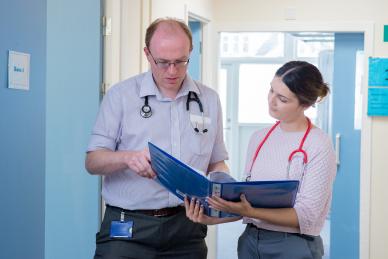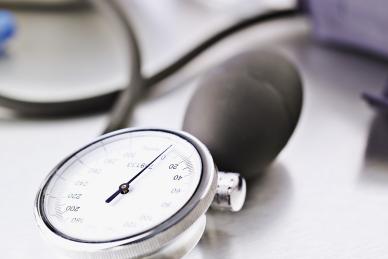Events
We host events on Neurology and other related fields throughout the year. Visit our events programme to find out more.
Empowering medical excellence, shaping healthcare futures.
Great if you like attention to detail and delving into the patient’s history for clues
Gives you clinical skills that other doctors have never had the chance to hone – clinical neurological examination
Fascinating trying to ‘work out’ the problem
A wide range of teaching hospital sub-specialties that you can get involved in, but also suits those with an interest in district general hospital (DGH)-style general neurology
On-call from home, and generally not too hectic, unless you do stroke thrombolysis
A bad reputation for being stuffy and male-dominated – thankfully now no longer true
A reputation for having limited treatment options – thankfully now no longer true
Not so ‘hands on’ which puts some people off
Dr Neil Archibald is a Final year SpR.
"Using your logic and instinct to describe, define, localise and treat the problem."
A bit more ‘thinking’ than in other more procedural specialties. More outpatient working and more chronic disease than most jobs. I chose it because I was interested in diseases of ageing (Parkinson’s, dementia), wanted to do a research degree and felt too stressed out when I was the Medical Registrar.
Get into the clinics when you are an Internal Medicine Trainee (IMT) or Foundation Doctor
Attend the regional academic meetings – this is where you learn the craft of neurological reasoning
Ask around to see if there are interesting cases you can write up or audit projects that you can submit as a poster
Don’t allow people to ‘put you off’ – I have never had cause to regret my change to Neurology
| 8.30am | 9.00am | Arrive at work, get some coffee, check my emails, sign some letters. |
| 9.00am | 10.00am | Meet on ward for rounds. |
| 10.00am | 12.00pm | See some ward referrals; sometimes complicated, sometimes straightforward, always thought-provoking. |
| 12.00pm | 12.30pm | Grab a bit of lunch, more coffee. |
| 12.30pm | 1.15pm | Academic meeting; an opportunity to present/hear about an interesting patient. |
| 1.30pm | 2.00pm | Admin, discuss referrals with Consultants, review referrals again, check a few scans. |
| 2.00pm | 5.00pm | Parkinson’s disease clinic – seeing a wide range of patients with Parkinson’s and other related movement disorders. |



A five-year programme (ST3-ST7) with single accreditation. Training is based in teaching hospitals, with on-call usually from home. Clinical training in general inpatient and outpatient neurology, with sub-specialty exposure to fields such as stroke, movement disorders, multiple sclerosis, epilepsy, nerve and muscle disease, motor neurone disease etc. Many trainees will choose to undertake research or teaching degrees, some of which may ‘count’ towards time spent in clinical training.
Knowledge-based assessment (KBA) to be taken between ST5 and ST7.
Neurology is traditionally thought of, and in reality still is, an academic specialty. As such, most trainees will undertake out of programme research (OOPR) (MD, PhD) or teaching degrees. Deaneries are generally supportive of this – but not always – so if it is your passion, make sure that the region you apply to has a good track record.

We host events on Neurology and other related fields throughout the year. Visit our events programme to find out more.